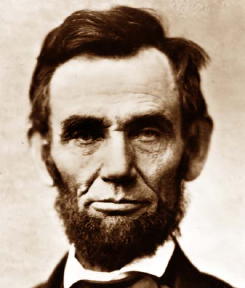Today is the last day of a signally important year for the young United States (only 87 years old), a year which began with the issuing of an Emancipation Proclamation applying only to slaves in rebelling states, yet which ended with the first of several bills proposing amendments which would totally prohibit slavery throughout the country. The Senate passed the amendment in April 1864, 38 to 6, and the House passed it in January 1865, 119 to 56. The amendment was submitted to the states, and by December 6, 1865, it was ratified by the necessary 27 states; eventually, all 36 states ratified it.
The most compelling immediate consequence of the Emancipation Proclamation was the enlistment of colored people in the United States armies, in separate regiments officered by whites. The 54th Massachusetts Volunteer Infantry Regiment was the first such regiment raised among free negroes of the North. As such, it was highly visible throughout the country. The regiment’s great courage and steadfastness in all of its engagements, and especially the assault on Fort Wagner, had a significant impact on the perceptions and opinions of whites and blacks throughout the country.
The changes bought with so much blood of black and white Union soldiers were just the beginning of the long journey of this society. Racial segregation in the U.S. armed forces did not officially end until 1948. Despite the addition of the 14th Amendment (civil rights in the states; 1868) and the Fifteenth Amendment (voting rights; 1870), it took 100 years for the evils of explicit segregation to be confronted and substantially dismantled. In that time, it has come to be recognized that all people, regardless of color or gender, must enjoy the privileges of full citizenship. The election of a President of color, the selections of Secretaries of State who are of color or are female, the ascent of men of color, and women  — both white and colored, to high positions in U.S. corporate life, testify to the distance this country has travelled since 1863.  But one need only read or listen to the daily news to know that this journey is far from over, that it will remain a constant struggle to slowly grind down the evils of prejudice, generation by generation.
The 54th Massachusetts fought through the rest of the Civil War with distinction. The regiment was part of a poorly-led expedition to Florida in February of 1864 and participated in the disastrous battle of Olustee, distinguishing itself by steadfastly covering the retreat of the remaining Union forces. With ironic justice, the regiment was one of the principal occupying units in Charleston in 1865.
- Robert Gould Shaw was killed in the assault on Fort Wagner. [BCF]
- James Henry Gooding was shot in the thigh and captured at the Battle of Olustee. He later died imprisoned in the Confederate prison camp at Andersonville. [OAF]
- George E. Stephens fought with the regiment through the end of the war and mustered out in July of 1865. [VT]
- Luis Fenollosa Emilio fought with the regiment through the end of the war, and mustered out in March of 1865. [BBR]






